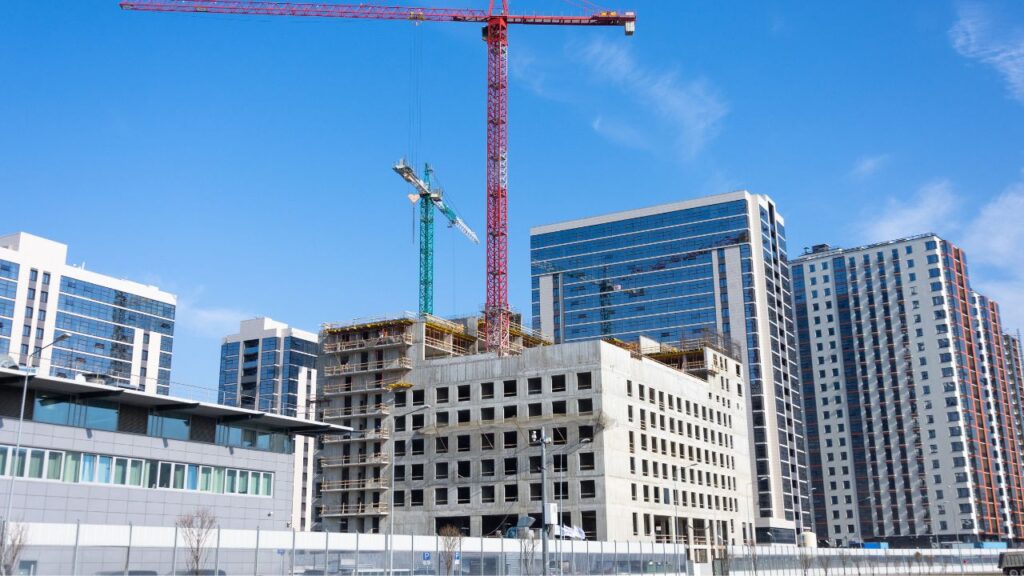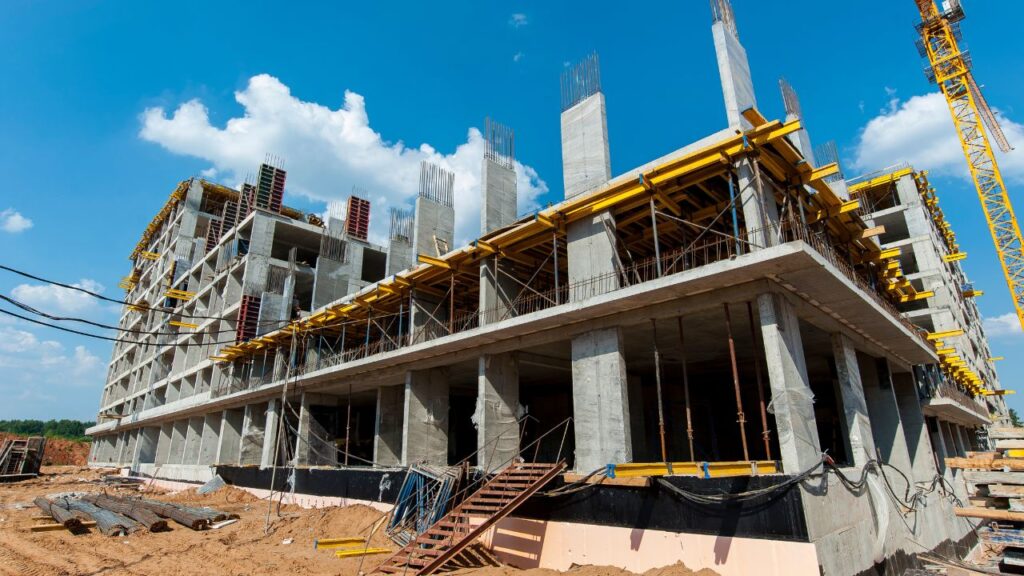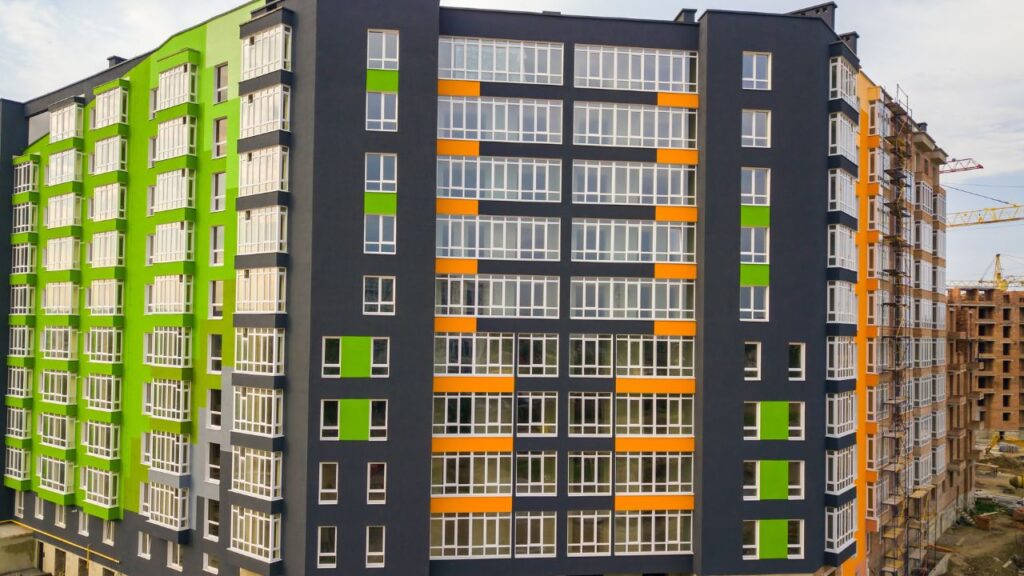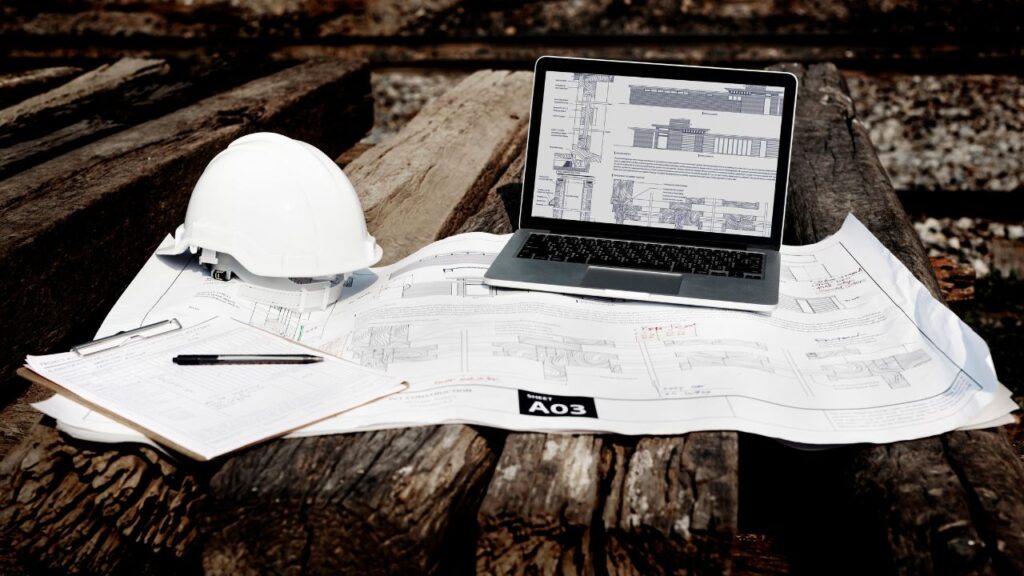A Wining Cost Estimate That Helps You To Win More Construction Projects

An accurate estimation of construction costs is a crucial factor in maximizing ROI. The importance of effective cost estimation cannot be overstated as it helps stakeholders make informed decisions, improves project profitability, increases financial stability, boosts investor confidence and reduces delays and disputes.
Construction cost estimation involves estimating the direct costs such as materials, labor, equipment rental, permits and indirect costs such as overhead, risk management, contingencies and profit margin. It relies on historical data, market trends, project complexity and scope. A comprehensive cost estimate enables stakeholders to allocate resources more efficiently and effectively.

Effective construction cost estimation helps companies develop realistic budgets and avoid underestimating or overestimating the costs of a project. Moreover, anticipating potential delays beforehand can prevent unexpected expenses that could derail the entire project leading to unwanted complications.
The importance of proper construction cost estimation strikes a chord with many. In 2009 the Big Dig tunnel disaster carries estimated losses of over $14 billion dollars for Massachusetts whilst costing ~$2.6B USD to build.
Get your calculator ready, because we’re about to do some serious number crunching for accurate construction cost estimation.

To prepare for accurate construction cost estimation with effective ROI, you need to gather necessary information, identify potential risks and consult with experts. By doing so, you ensure that your construction project is well-researched, planned, and executed. In this section, we will delve into these sub-sections to help you maximize your ROI through cost estimation.
To obtain accurate construction cost estimates, it is crucial to gather all the relevant information. This includes but is not limited to blueprints, timelines, and material costs. The gathered data should be organized and analyzed in a systematic manner to ensure accuracy.
Additionally, it is essential to consider external factors that may affect construction costs, such as government regulations or market fluctuations. Conducting research on past projects and industry trends can also aid in gathering necessary information for estimation.

To obtain accurate construction cost estimates, it is crucial to gather all the relevant information. This includes but is not limited to blueprints, timelines, and material costs. The gathered data should be organized and analyzed in a systematic manner to ensure accuracy.
Additionally, it is essential to consider external factors that may affect construction costs, such as government regulations or market fluctuations. Conducting research on past projects and industry trends can also aid in gathering necessary information for estimation.
The level of detail required for accurate estimates may vary based on the project’s complexity and budget. Still, it is crucial to ensure that all relevant details are accounted for in the estimation process.
A report by ENR found that inaccurate estimations were responsible for 37% of construction project failures. Therefore, planning, organizing and conducting thorough research during the information-gathering phase plays a crucial role in ensuring successful project outcomes.
Expect the unexpected: Identifying potential risks in construction is like playing a game of Whac-A-Mole, except the stakes are much higher.
In order to effectively estimate construction costs, it is crucial to anticipate and mitigate potential risks. This includes identifying various factors that could impact the project delivery, from labor shortages to environmental factors. By conducting a thorough risk assessment, projects can better prepare for unexpected expenses and avoid costly delays.
To identify potential risks, construction professionals must closely examine the scope of work and all relevant documentation such as contracts, plans, and specifications. Additionally, they may gather input from relevant stakeholders such as subcontractors or consultants. This process allows for early identification of risks and development of contingency plans.
It is important to note that identifying potential risks is an ongoing process throughout the construction project’s lifecycle. One must continuously assess various scenarios on what might go wrong during each phase of the project plan execution. This real-time approach which teaches us about strategic planning in everyday life provides a more accurate cost estimation than relying on initial assumptions made at the beginning of the project.
Recently a high-end residential complex suffered delays due to labor shortages in their excavation department despite having successfully recruited staff a few months earlier before starting with construction activities. The contractor had not considered future availability challenges due to which several associated activities also got affected like procurement of raw materials etc., leading to escalated costs and timeline displacement all over the first two quarters of their project execution plan.
Consulting with experts is like asking a friend for advice: you’ll either get the best information or a confusing mix of opinions.

The Key Role of Professional Advice
Obtaining information and guidance from knowledgeable professionals can be critical when preparing for an accurate construction cost estimation. Experts in the field provide essential insights into factors that may impact costs, such as market trends, regulatory requirements and labor costs.
Such input is particularly valuable when dealing with complex projects or challenging construction sites not previously experienced by a firm. Additionally, consulting with experts may also help ensure that estimates are realistic and comprehensive, reducing the likelihood of unexpected expenses down the line.
It’s worth noting that professional consultation should involve detailed discussions covering a wide range of topics to ensure that nothing has been missed while estimating construction cost accurately. By understanding the complexities involved in any project and being prepared for any eventuality will benefit both companies and project managers.
A Real-world Example
A Fortune 500 company once embarked on a large-scale construction project without consulting adequately with experts. Despite careful planning by its internal team, unforeseen problems surfaced during the execution phase causing unexpected delays and overages. If they had sought out expert advice earlier in the process, they could have minimized these issues in advance and saved both time and money.
If estimating construction costs was easy, we’d all be sipping cocktails on a beach instead of crunching numbers.

To maximize your ROI when it comes to construction projects, you need to be able to accurately predict the costs involved. The methods for effective construction cost estimation with the sub-sections: Quantity Survey Method, Comparative Cost Estimate Method, and Unit Cost Method, are solutions that can help you achieve this goal.
The process of assessing the cost in advance is a crucial aspect when it comes to construction projects. One of the most reliable techniques used for estimating costs is the Bill of Quantities method. This process enables stakeholders to have a comprehensive view of every item needed, including their quantities and corresponding prices. The Bill of Quantities method involves a systematic assessment of all elements essential for completing the project. This technique entails creating an inventory of works by assessing structural components, installation requirements, and labor efforts required for completion.

After gathering all these details, stakeholders can then determine the estimated cost based on materials needed, quality expectations, costs required for labor and management efforts.
It’s vital to make use of the latest software applications such as BIM (Building Information Modelling) techniques when using this estimation method efficiently. The tool helps ensure that this process is more efficient by enabling accurate data collection and management with higher precision due to its 3D modeling.
This estimation technique has been widely embraced worldwide in various aspects within construction projects, especially in large-scale commercial fields such as oil and gas industries. According to industry experts at The Construction Institute (TCI), it’s considered as one of the most practical methods for detailed cost analysis throughout various stages in construction projects due to its technical accuracy and reliability.
Comparing construction costs: like trying to weigh a cat while it’s still chasing its tail.
Maximize your construction business’s potential with our competitive financing options

Comparative Cost Assessment Technique evaluates items based on other similar projects. Here’s a table that explains it in detail:
Column 1 | Column 2 | Column 3 |
|---|---|---|
Item Description | Quantity of Items Required | Unit Price |
This process helps to measure how other projects spent their money on similar items, allowing for the creation of cost estimates without severe guesswork. Furthermore, unit prices can be negotiated with suppliers if a project’s overall budget must be cut down.
It is crucial to note that while Comparative Cost Assessment Technique provides an estimate, it requires an experienced construction manager to make precise comparisons and select appropriate parameters.
Don’t miss out on the importance of cost estimation in construction projects. Utilizing this method can provide accurate financial planning and prevent unexpected expenses during construction. So start using this technique in your next construction project!

To estimate construction costs, the approach of using a single cost point for every unit or item of construction is known as the ‘single-unit costing method’. The ‘Unit Cost Method’ provides an efficient and effective way to ascertain overall project costs by breaking down a project into multiple tasks. Using this methodology, one can calculate the value of each individual task within the project. The total cost can then be found by adding up all of these individual prices. The Table below shows a detailed breakdown of estimated Unit Costs across different phases of construction projects.
Task | Estimated Unit Cost |
|---|---|
Excavation | $10.00/sq.ft |
Framing | $35.00/sq.ft |
Finishing | $20.00/sq.ft |

Interestingly, using this approach guarantees precise and accurate estimation with minimal variables and risks involved. It is important to note that while there are several estimating methodologies to choose from, none are perfect; utilization of professional experience in arriving at an appropriate valuation cost per unit helps reduce discrepancies between real and estimated costs. In practical terms, applying the principles embedded in these methods can go a long way in avoiding expensive challenges that could arise if unguided estimates were used as a benchmark for realistic project expectations. For instance, I once worked on a project where poor planning led to deviation from original plans, significant spec changes late into our timeline, increased procurement spending and ultimately constriction delays – all because there was no initial use of any tangible extractable cost data such as the ones done when deploying units like the ‘Unit Cost Method’. Want a high ROI in construction? Better estimate those costs or you’ll be building a bridge to bankruptcy.

To maximize your ROI through effective construction cost estimation, you need to identify potential cost savings, prioritize cost-effective alternatives, and track and manage costs throughout the project. In this section on maximizing ROI through effective construction cost estimation, we’ll explore how these sub-sections can help you achieve your financial goals in construction projects.
The process of exploring opportunities for reducing expenses is crucial in maximizing ROI. Here’s how to uncover possible savings:

It’s important to note that while these steps may be helpful, every project is unique, and there may be other areas to consider. Hence a customized approach should be adapted.
By recognizing potential cost-saving opportunities early on in the construction process and addressing them proactively, businesses can maximize their ROI while still delivering high-quality work.
Saving money on construction costs is like playing Jenga – you have to carefully prioritize and balance the blocks of expenses.
When strategizing construction projects, it is essential to prioritize alternatives that are cost-effective. This involves evaluating options that minimize expenses while still producing high-quality outcomes.
When considering cost-effective alternatives, it is crucial to determine which strategy will optimize ROI without impacting quality. Carefully analyzing all possible avenues while keeping track of the final goal can help one prioritize and choose the best possible option.
Cost tracking is like playing hide and seek with money – except the money always wins.
Keeping a tab on finances and managing them effectively is an essential aspect of any construction project. Maintaining a record of finances helps in keeping the budget in check and maximizing ROI.
Here’s an overview of the financial tracking and management throughout your construction project:

Task | Estimated Cost (in USD) | Actual Cost (in USD) | Variations (in%) |
Material procurement | 50,000 | 51,000 | +2% |
Labor Costs | 30,000 | 28,500 | -5% |
Machinery Rental & Maintenance Costs – Insurance, Accounting Charges, Office Supplies – Visa Fees, Permits, and other Licenses | 20,000 | 18,500 | -7.5% |
Contingency Funds | 10,000 | 11,500 | +15% |
One must ensure to maintain a record of all expenses accurately and regularly to avoid complications later on. For instance, if there are any changes or alterations made during the project that affect cost estimation, they should be documented and tracked with new estimates.
Careful tracking of finances will not only help in keeping costs under control but also ease up bookkeeping and accounting records. It will keep investors satisfied with an accurate understanding of the project expense structure.
A company once went over budget by millions in a mall construction project due to mismanagement of costs and finances. The lack of proper financial monitoring and record-keeping resulted in decreased profits for investors which could have been easily avoided if there were accurate estimations and tracking of expenses throughout the project timeline.
Sure, estimating construction costs accurately may not sound glamorous, but it sure beats the alternative – asking your investors for more money mid-project.
Effective construction cost estimation leads to substantial benefits for project owners. Accurate estimations help in maximizing ROI and reducing potential losses. Cost estimation enables stakeholders to identify areas where resources might be underutilized or over-utilized, thus helping them to optimize investments.
Apart from monetary benefits, effective cost estimation plays a vital role in maintaining transparency across projects. Providing realistic budget estimates to clients contributes significantly towards building trust and long-lasting relationships. Additionally, it facilitates effective project management by enabling teams to stay within budget limits and providing early warnings on overspending.

Proper implementation of cost estimation helps projects get completed within deadlines, thereby saving money, time and efforts. Moreover, with accurate estimations, owners can remain stress-free and avoid last-minute surprises that might end up adding unanticipated costs.
According to the Construction Industry Institute (CII), accurate cost estimating is essential for project success as it allows those involved in the project to make informed decisions based on data-driven predictions. “The absence of accurate estimating will have a long-term impact on any capital project,” states Stephen Mulva of CII research associate.[1]
Construction cost estimation is the process of estimating the likely costs involved in constructing a building or infrastructure project. This includes materials, labor, and any other expenses related to the project.
Effective construction cost estimation helps to ensure that a project is completed on time and on budget. This enables investors to maximize their return on investment (ROI) by minimizing unexpected costs and minimizing delays in project completion.
Construction cost estimates can vary in accuracy, but it’s generally recommended that they be within 5-10% of the actual cost to be considered accurate. Factors that can affect accuracy include uncertainty about material costs, labor costs, and unforeseen circumstances that can arise during the construction process.
Investors can find reliable construction cost estimators by searching online for reputable companies or consulting with industry experts. Referrals and recommendations from peers can also be helpful in finding a reliable estimator.
Software can be a valuable tool in construction cost estimation, as it can help to automate the process, reduce errors, and provide more accurate estimates. There are numerous software options available for construction cost estimation, ranging from basic spreadsheets to more advanced programs with advanced features and capabilities.
Here I am going to share some steps to get your construction cost estimate report.
You can send us your plan on info@estimatorflorida.com
Before starting your project, we send you a quote for your service. That quote will have detailed information about your project. Here you will get information about the size, difficulty, complexity and bid date when determining pricing.
We do construction cost estimating and prepare a detailed report for your project. At last you finalize the report and finish the project.
561-530-2845
info@estimatorflorida.com
Address
5245 Wiles Rd Apt 3-102 St. Pete Beach, FL 33073 United States
561-530-2845
info@estimatorflorida.com
Address
5245 Wiles Rd Apt 3-102 St. Pete Beach, FL 33073 United States
All copyright © Reserved | Designed By V Marketing Media | Disclaimer
IMPORTANT: Make sure the email and cell phone number you enter are correct. We will email and text you a link to get started.
By clicking “I Agree” above you give Estimate Florida Consultin express written consent to deliver or cause to be delivered calls and messages to you by email, telephone, pre-recorded message, autodialer, and text. Message and data rates may apply. You are able to opt-out at any time. You can text STOP to cancel future text messages.